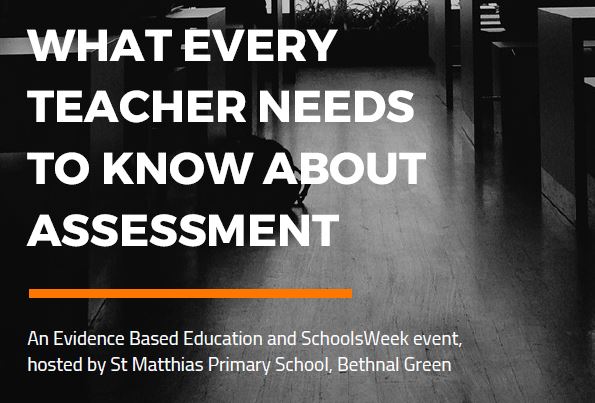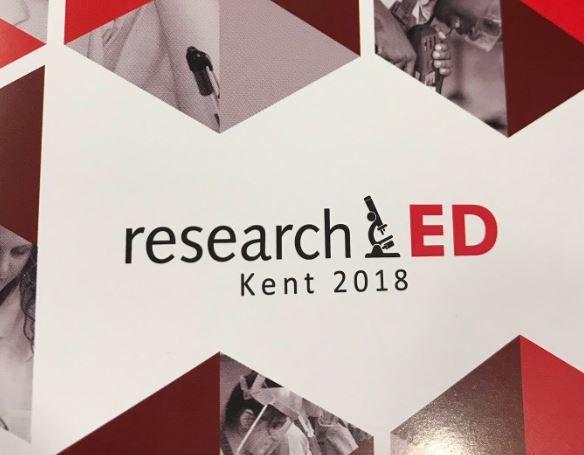Introduced by Professor Stuart Kime (Director of Education at Evidence Based Education – EBE) “What every teacher needs to know about assessment,” brought together researchers and cross-phase leaders, teachers and teacher trainiers; Dr Christine Harrison (King’s College London), Phil Stock (Secondary DHT – Greenshaw High School) Amie Barr (Head of Assessment – ARK) Prof Becky Allen (UCL IoE) Claire Sealy (Primary HT – St Matthias Primary) and Jon Hutchinson (Cross phase teacher – Reach Academy). It was a two pronged attack, the live session (recorded), accompanied by a free ebook, covering two simple but important questions.
What does every teacher need to know about assessment?
Here is a whistle stop tour of the combined contributions made by the panels, offline and online. Until relatively recently the term ‘threshold concepts’ (core or threshold concepts, once understood, transform perception of a given subject, phenomenon, or experience) had not crossed my radar. It has popped up in my reading recently, particular around mathematics planning and delivery and the debate around novice and experts learners. And like buses… Jon Hutchinson offer six threshold concepts to precede our assessment conversations.
- Cognitive Load Theory (CLT)
- The Forgetting Curve
- Retrieval Strength and Storage Strength
- Learning and Performance
- Validity and Reliability (measurement error and what do we mean by standardisation – Phil Stock)
- Generic Skills and Deliberate Practice
Phil Stock – started by pointing out that knowing about assessment and practically having time to do something with that knowledge, is an important and practical consideration. Phil advocated that teachers need to know what assessment is
A means or mechanism for generating inferences about things we want to know, such as how much students have learned. Phil Stock
Knowing Phil, his use of “inferences” a very purposeful hint towards the fallibility of assessment. He goes on to stress that,
Assessment is messy, imprecise and always an approximation.
Phil goes on to note that the ability to craft a really good multiple choice question that targets things that you want to know about in the classroom – and how you act upon them – is really powerful. (Highly respected educators discussing assessment and curriculum are highlighting the value of MCQs all over the assessment conversation at the moment. Tim Oats and Craig Barton over at the #IOEdebates and here on this panel.)
I first ‘met’ Dr Christine Harrison as one of the online tutors on the excellent and free FutureLearn Assessment for Learning in STEM course (I’m not a Scientist either). Highly recommended for all teachers, particularly for STEM teachers.
Christine brought years of experience to the conversation with a distinctly professional developmental outlook. She elaborated on a very useful professional development conversation prompt from the ebook, a prompt I foresee using myself in the future. How do we assess your ability to make a cup of tea?
So, you could have a written test where students write steps in order, OR you could make it an authentic task and you could observe and judge what you see students doing, possibly against criteria/rubrics… OR you could just taste the products. (ebook)
As a scientist (a biologist), her requirement for a hygienic mug, one of her criterion that I would have overlooked!
Here is our first key and additional learning point from the recording.
Got it or not. Know it or not. That binary definition of learning is not tapping into the reality of learning. That learners now bits of a topic, some of it, if not all of it. – Stuart Kime (paraphrased and reordered)
Clare Sealy – teachers need to know alot about responsive teaching, a fair amount about benchmarking and a tiny bit about tests and exams.
Clare referenced that great Nuthall point – that in many lessons, children already know half of what is being taught. The problem is, knowing which half. I would add, that each child may know a different half!
Amie Barr was very much focused on the purpose of responsive teaching and clear on the separate function of formative and summative assessment. Where summative assessment is presented as offering diagnostic opportunities (the same argument can be made of formative assessment).
Becky Allen outlined the diversity of “teaching”. Age range, domain, contact time – all influencing on what, how and when, we, as teachers, choose to assess.
Becky shared a summary of Rob Coe’s recent assessment commentary, that left me hugely disappointed (not in the commentary but in the ability of teachers to know the validity of their ability to assess accurately). That for responsive teaching to be effective, formative assessment needs to be reliable. Simply, it is not. Once you read the commentary I expect you will be left disappointed too, if not deterred.
As for the summary round-up of Q1. Note the first audience posed question. “In the proposed new Ofsted framework…” Regrettably, the real-world of education, instead of assessment as learning, for learning, for planning… we immediately hear assessment being considering through an accountability lens. It will take a lot of effort to shirt the current educational climate we are teaching and assessing within.
Forty informative minutes of professional development.
As we know, paired lectures and the recording, offer the learner to watch and re-watch the content. Add to that the panel Q&A, the rich off-piste conversation (where the fresh snow is) and networking, is why we try attend these events in the first place. Therefore, I want to thank the team at EBE for a) hosting and b) sharing the event.
What every teacher needs to know about assessment from Evidence Based Education on Vimeo.

